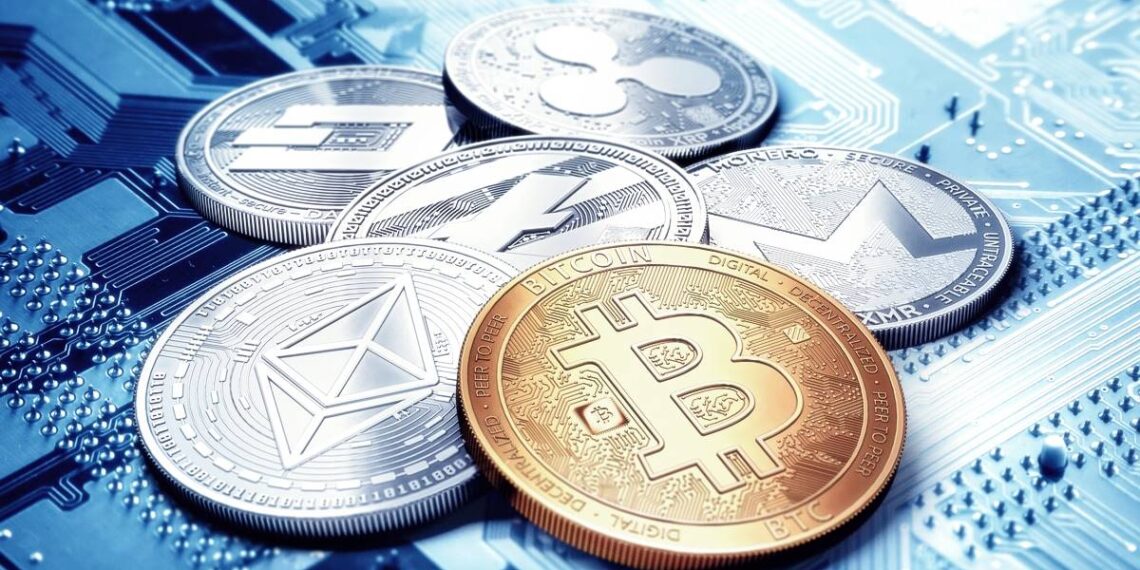No products in the basket.
Southeast Asia, a diverse region with different cultures, a rising income, and an increasing population is also a region that is fully embracing the potential of cryptocurrencies and blockchain technology.
Some countries like Vietnam, the Philippines, and Thailand are among the top 10 countries with the highest crypto adoption rates in Chainalysis’s 2023 global crypto adoption.
According to the report by Chainalysis, Vietnam ranks third in the world in terms of crypto adoption, followed by the Philippines at sixth and Thailand at tenth. These countries have seen a surge in crypto usage among their populations, especially among the young, the unbanked, and the remittance-reliant. Crypto offers them an alternative way to access financial services, store value, and transfer money across borders.
According to Statista, the revenue generated by the crypto market in Southeast Asia is projected to reach US$1,787.0m this year. An annual growth rate (CAGR 2024-2028) of 8.75% resulted in a projected total amount of US$2,499.0m by 2028.
What are the main factors behind the crypto growth in the region?
The current growth of the cryptocurrency industry in Southeast Asia is driven by different factors, such as:
- There are low levels of financial inclusion, with a high number of unbanked people among its population across different countries.
- The favorable regulations in certain countries like Singapore and Hong Kong support the growth of the crypto market.
- Many new tech funds are investing and backing different crypto start-ups across the continent.
- High mobile penetration and internet access
- Low trust in traditional institutions and fiat currencies
Last year, Singapore’s Central Bank committed $112 million to support local fintech solutions from emerging Web3 technologies.
Also, the regulators from Japan and Singapore joined forces to develop new crypto testing initiatives projects through the latter’s Project Guardian initiative.
What are some of the use cases of cryptocurrencies in the region?
DeFi: Decentralized finance applies the use of blockchain technology to bring different financial services such as lending, borrowing, trading, and staking without the presence of intermediaries.DeFi platforms have attracted users and investors from the region, especially Vietnam and Thailand.
Gaming: This industry applies blockchain technology to create different types of games, allowing players to connect and generate money by playing, breeding, battling, and trading digital assets. Other gaming platforms have become popular in the region, especially in the Philippines and Indonesia.
Payments and remittances: Cryptocurrency is also used to facilitate fast, cheap, and secure transactions across borders and currencies. Payment and remittance platforms have enabled users and merchants to access and use cryptocurrencies for various purposes, such as commerce, tourism, and donation.
Innovation and challenges for crypto projects and startups in Southeast Asia
Innovation: Southeast Asia is not only a consumer of crypto, but also a producer of crypto innovation. The region is home to some of the most promising and successful crypto projects and startups in the world. For example:
- Axie Infinity: A blockchain-based game that allows players to collect, breed, and battle digital pets called Axies. The game has become a global phenomenon, with over 2 million daily active users and over $2 billion in revenue. The game is especially popular in the Philippines, where some players earn more from playing than from their regular jobs.
- Band Protocol: A decentralized oracle network that connects smart contracts with real-world data. The project aims to provide reliable and scalable data feeds for various applications, such as decentralized finance (DeFi), gaming, and identity verification. The project has partnered with leading platforms such as Google Cloud, Binance Smart Chain, and Polygon.
- Terra: A blockchain platform that powers a suite of stablecoins pegged to various fiat currencies. The platform leverages an algorithmic monetary policy and a native token called LUNA to maintain the stability and growth of its stablecoins. The platform also supports various applications, such as payments, savings, lending, and e-commerce.
Challenges: Despite the impressive progress and potential of crypto in Southeast Asia, there are also some challenges and risks that need to be addressed. Some of these are:
- Cybersecurity and fraud: As crypto becomes more mainstream, it also attracts more attention from hackers, scammers, and criminals. There have been several cases of crypto thefts, hacks, phishing, and ransomware attacks in the region. Users need to be more vigilant and careful about their online security and privacy.
- Regulatory uncertainty and compliance: While some countries in Southeast Asia have adopted a friendly and supportive stance towards crypto, others have been more cautious or hostile. There is a lack of clarity and consistency in the regulatory frameworks and policies across the region. This creates challenges for crypto businesses and users who have to navigate different rules and requirements in different jurisdictions.
- Education and awareness: Despite the growing popularity of crypto in Southeast Asia, there is still a lot of misinformation, misunderstanding, and skepticism about the technology. Many people are unaware of the benefits and risks of crypto, or how to use it safely and responsibly.
Despite the current growth of the cryptocurrency industry in Southeast Asia, the region also faces some challenges, such as regulatory diversity, the infrastructure gap, the talent shortage, and the social impact.
Southeast Asia has different approaches and stages of crypto regulation, ranging from the progressive and supportive Singapore to the restrictive and prohibitive China.
Southeast Asia must attract and retain more talent and capital to foster innovation and competitiveness. The region also needs to leverage the potential of crypto to create positive social and environmental outcomes, such as financial inclusion, poverty reduction, and carbon neutrality.
The region has a lot of promise and potential for the crypto industry as it embraces crypto as a new frontier of innovation and inclusion. The area is poised to become a global leader and hub for crypto as it aligns with the international trends of digitalization and decentralization of the economy.
Discover more from Thailand Business News
Subscribe to get the latest posts sent to your email.














